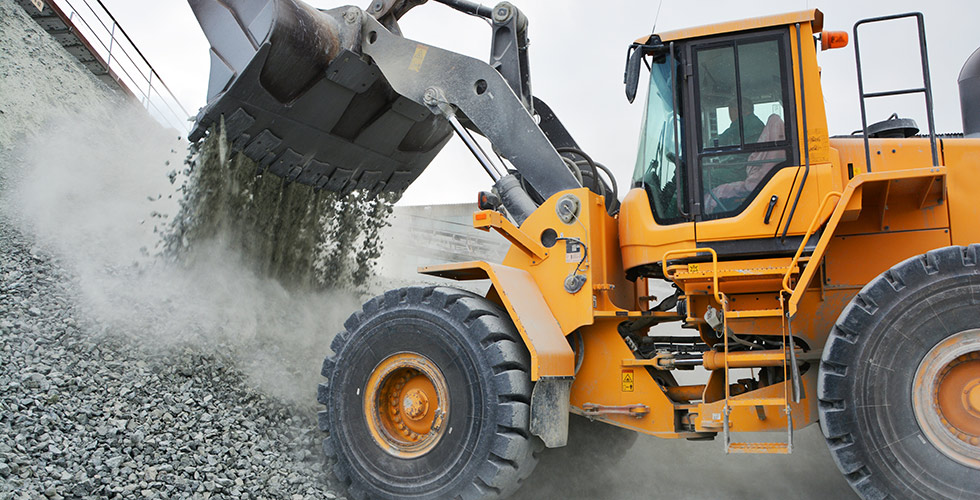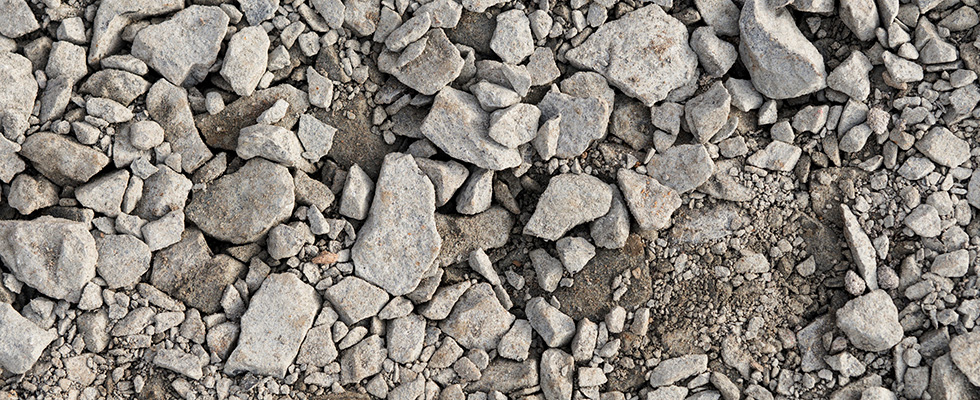
Using aggregates for roads, driveways, and construction has numerous benefits. Aggregates are widely used in the construction industry due to their versatility and durability. Offering a wide range of sizes, shapes, and colors, they can help reduce costs while at the same time adding strength and aesthetic appeal to any project when used correctly.
Using aggregates is beneficial due to their strong composition, which can resist erosion easily, making them ideal for roads, driveways, or areas that need extra reinforcement. Aggregates offer excellent drainage capabilities and proven resistance to cracking over time due to movement caused by traffic or fluctuations in temperature.
Aggregates are also an economical choice compared to other construction materials, such as asphalt or concrete, and they are also lightweight and easy to work with onsite. When mixed with cement, a special adhesive paste is created that hardens into a compact solid form that binds the stones together tightly while acting like a cushion between them, so they don’t shift position over time. This helps ensure that the road or driveway lasts much longer than traditional materials under the same circumstances while costing less overall to install and maintain in the long run.
When thinking about using aggregates for your project, it is essential to factor in all of these benefits into your considerations before making your final decision on what material you should use for your project needs:
- Versatility and durability
- A strong composition that resists erosion
- Excellent drainage capabilities
- Resistance to cracking over time
- An economical choice when compared with other materials
- Lightweight and easy to work with onsite
- The cushion between the stones prevents shifting position over time
- It costs less overall to install and maintain in the long run
Factors to Consider When Choosing Aggregates
Several factors must be considered when selecting an aggregate for roads, driveways, and construction projects. The most important criteria include size, cost, durability, and longevity. To ensure the product you choose will meet your needs and provide excellent performance, it’s essential to understand what these characteristics mean for different types of aggregates.
- Size: Size is a critical factor when selecting an aggregate. Different sizes are better suited for various applications; a large total is best used for road construction, while smaller gravel or stone is better suited for driveways or walkways. Additionally, larger stones will create more stability in a roadway than smaller ones due to increased interlock properties between the rocks themselves – think of it like a puzzle where pieces need to fit tightly together to create a solid surface area.
- Cost: The aggregate cost can be an important deciding factor when choosing one over another, depending on its intended use. It’s important to weigh not just the initial cost but long-term savings as well; cutting costs upfront by buying cheaper materials may result in damage and degradation quicker down the road requiring costly repairs or replacement that may have been avoided with more expensive, but higher quality materials initially purchased.
- Durability + Longevity: This aspect largely depends on the material used and how it is installed since poorly installed aggregates will cause premature wear and tear even if quality materials were selected originally. When looking for durable, long-lasting options, concrete mix (both regular and permeable varieties) will almost consistently outperform traditional gravel unless a specific application calls for that type of material precisely due to its ability to retain heat from sunlight which can help melt snow more quickly during colder weather conditions making it ideal for roads leading up mountain passes or areas prone snow buildups during particular seasons of the year.
Uses of Aggregates in Road Construction
Aggregates are the essential constituents of road construction, and they provide the necessary strength, stiffness, and durability to support traffic loads. Aggregates comprise most of a pavement structure; they serve as the foundation and are carefully chosen for their durability and ability to resist wear and tear. The type of aggregate used may depend on several factors, such as climate, local geological conditions, the weight of vehicles, cost considerations, etc.
Common aggregates used in road construction include:
- Gravel or crushed rock [including limestone and granite],
- Sand,
- Recycled concrete (asphalt always contains some recycled material) [also referred to as rubberized asphalt],
- Slags or ashes.
Coarse aggregates with good resistance to wear can offer various benefits, including improved road skid resistance and increased pavement life due to enhanced load-bearing capacity and drainage properties. Other benefits may include improved performance during rainy weather conditions, reduced reflective cracking from fatigue caused by repeated traffic loadings, and reduced water absorption into permanent pavements resulting in reduced raveling along roadway shoulders where maintenance activities are not allowed for safety reasons.
To form a solid base for many roads, a mix of coarse aggregates can be used depending on the type and frequency of traffic loading combined with physical characteristics such as:
- Gradation (specific particle sizes),
- Angularity (uniformity)and shape can affect stability under repeated loadings from traffic tires at speeds ranging from 30 – 70 mph in mix designs modified for specific areas depending on those conditions in that region.
Uses of Aggregates in Driveways
Using aggregates in driveways can provide several benefits, including strength and stability, drainage, and improved water retention. Aggregates are also an environmentally friendly surface option because they require less energy to produce than many other materials used for construction.
Aggregates come in different sizes and can be made from recycled glass and scrap metals. They are often used with concrete or asphalt to form strong sub-bases for driveways. Aggregates minimize soil movement under the driveway, which can lead to cracking, rutting, and eventual potholes over time due to changes in weather conditions. This makes them a great surface choice for long-term use without frequent repairs or maintenance.
The rough edges of crushed stone create pathways for water to filter into the ground reducing runoff which helps reduce pollutants going into natural watersheds when stormwater enters streams and rivers before evaporating into the atmosphere. The improved drainage of aggregate surfaces is also beneficial during winter when wetter conditions may cause snow on paved surfaces to freeze quickly, creating ice patches and dangerous driving conditions.
Aggregate driveways provide a firm surface layer capable of supporting heavy vehicles while providing an attractive look, thanks to the various colors available with some products. These substrates can be treated with sealant products over time to provide additional protection from outdoor elements while also providing affordability on construction projects depending on the material type used.







